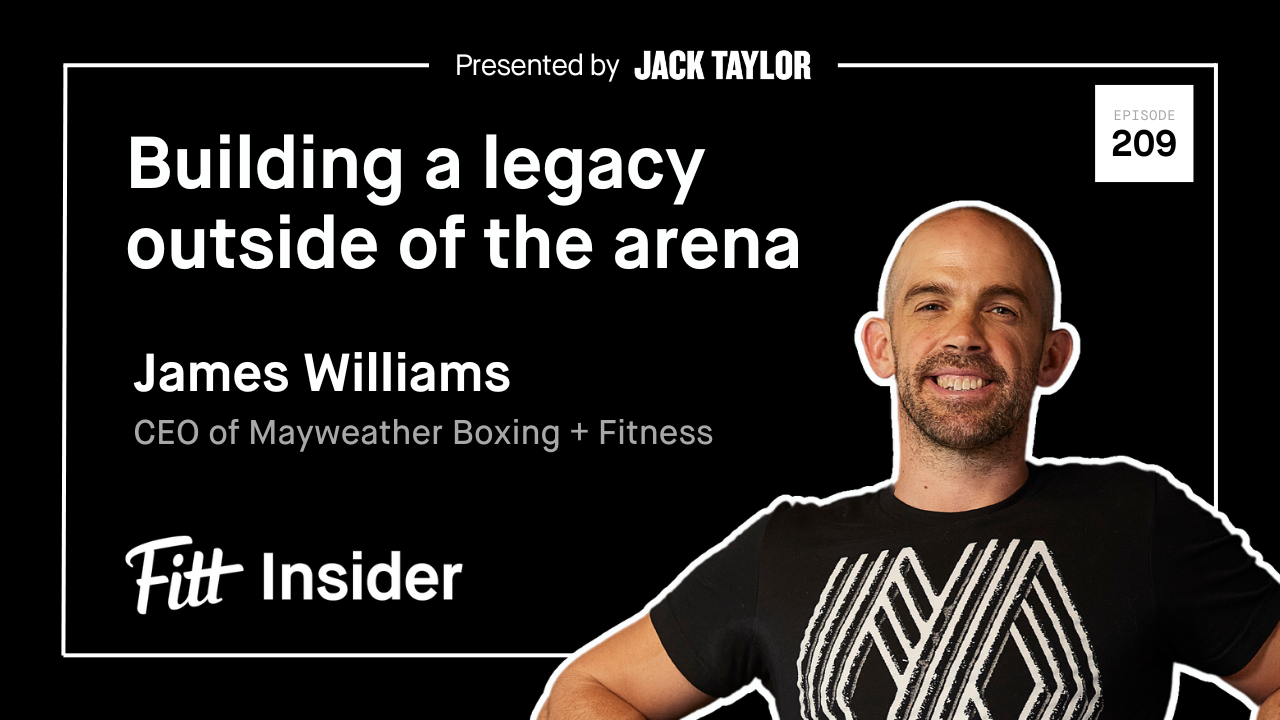
Gen Z is redefining fitness; this report explains everything.
The race to replace fast food with real food is on.
Fast Food Nation
Fast-food restaurants are everywhere — and that’s by design.
- There are over 200K fast-food restaurants in the US.
- 85% of Americans eat McDonald’s at least once per year.
- 36.5% of adults consume fast food daily, accounting for ~14% of caloric intake.
There’s roughly one fast-food outlet for every 24K Americans, but some are targeted more than others.
In lower-income African American communities, there’s an average of 71 fast-food restaurants within five miles of home — a stat researchers have linked to elevated BMI.
And, fast-food brands spend $5B annually on advertising, including television campaigns on children’s networks, with preschoolers seeing more than 830 commercials per year.
Supersized. Undeniably unhealthy, fast-food menus consist of ultra-processed, mass-produced items packed with sodium, sugar, saturated and trans fats, and preservatives. Plus, portion sizes are massive, with US meals often twice the size of options in other countries.
Beyond fueling obesity, regular consumption has been linked to depression, heart disease, Alzheimer’s, cancer, and diabetes. Still, many prefer fast to fresh, citing convenience, affordability, and addictively good taste.
Real Food Fast
Given fast food’s prevalence, the idea of serving good food fast—while making it affordable and delicious—can seem impossible.
But, no longer a nice-to-have, serving healthy, sustainable, convenient meals is a necessity.
- Factoring in US healthcare spending on diet-related diseases, the true cost of food doubles to $2.2T.
- Transport accounts for 19% of the global food system’s total greenhouse gas emissions.
- Since 2022, the price of eating at home has increased faster than dining out.
Attempting to provide healthier alternatives, better-for-you restaurant concepts are targeting the billion-dollar quick-service industry.
Everytable. Powered by centralized, chef-led ghost kitchens, Everytable makes healthy prepared meals affordable by adapting pricing to median income levels in the cities it serves. In 2022, the company sold 5.2M meals across 50+ retail shops (~40% of which serve low-income areas), commercial self-serve SmartFridges, and a subscription delivery service.
Sweetgreen. Making salad cool, Sweetgreen counts 215 restaurants focused on fresh ingredients. Pursuing suburban expansion, the chain is investing in drive-thru locations. And, after a successful pilot showed improved sales and operating margins, it plans to install an automated Infinite Kitchen in all locations within five years.
Love.Life. Part of the new holistic health company from Whole Foods co-founder John Mackey, Love.Life plans to open a flagship cafe in California next summer. With menus developed by nutritionists and MDs, the restaurant and forthcoming telehealth platform could prescribe meals to combat chronic conditions.
Elsewhere, better-for-you Mediterranean quick-serve CAVA IPO’d this summer and plans 1K restaurants by 2032. Meanwhile, ingredient stickler Chipotle is testing a healthy bowls concept, and jarred salad maker Farmer’s Fridge broadened its fridge-in-retail strategy with distribution in Target and Costco.
Punchline: Food is medicine, but healthy meals don’t have to be prescribed. And we’re not going to fix the entire food system overnight. So, instead of making everyone hunt for healthier options, we need to make nutritious, delicious, affordable food the default.
🎙 On the Podcast

Mayweather Boxing + Fitness CEO James Williams discusses building a boutique fitness brand with Floyd Mayweather Jr.
No stranger to celebrity partnerships, James previously advised on Beyoncé’s Ivy Park line and co-founded a lifestyle brand with Laird Hamilton. Now, he’s growing Mayweather Boxing + Fitness globally, with plans for nutrition supplements, VR workouts, and more.
We also cover: Floyd’s role in the company, keys to leveraging star power, and the vision for adding new business units.
Listen to today’s episode here.
🤝 Centr, HYROX partner on fitness equipment
Chris Hemsworth’s training platform Centr unveiled a range of competition-grade equipment co-created with fitness racing series HYROX.
Gearing up. Starting in 2024, Centr will outfit all global events with sleds, bumper plates, racks, and more. An enterprise-wide partnership, the gear will also be sold to HYROX’s affiliate gyms and promoted for at-home training with content on the Centr app.
Gaining ground. After combining with equipment manufacturer Inspire Fitness in 2022, Centr was primed for growth. The first step, it launched an affordably priced line of home fitness equipment at 4K Walmart stores this September.
Now, as Centr’s commercial segment takes shape, it’s benefiting from HYROX’s rapid ascent — reaching >150K participants and 1K+ affiliated gyms worldwide in 2023.
Of note, many of the 125+ US affiliates are CrossFit boxes, potentially opening the door to an even larger market.
Pressing on. Just a week after Nike entered equipment—supplying its fitness studios, commercial partners, and consumers—both brands are stepping into the ring with outfitters like Rogue Fitness, Eleiko, and Life Fitness-owned Hammer Strength.
Takeaway: Commercial-grade equipment alone won’t take the lifting world by storm. But, packaged with digital content, built-in supplier agreements, and names that sell, strength experiences from Centr and Nike may be setting a new standard.
Presented by Les Mills
💪 Cracking the code
Gen Z is redefining fitness.
And Les Mills is helping prepare the industry for this generational shift.
Youth movement. Conducting the largest study into the workout habits, preferences, and motivations of more than 4K global respondents aged 16–26, Les Mills compiled a 50-page report cracking the code on Gen Z fitness.
From where they exercise to what they splurge on, and what’s holding them back, this free report breaks down the key tactics gyms, studios, and health clubs can use to win with Gen Z.
Ready to crack the code? Get the Les Mills Gen Z fitness report here.
👟 Experts say rucking boosts strength, longevity
With roots in military training, walking with a weighted pack over a set distance—aka rucking—is catching on, for good reason:
- Rucking is linked to increased muscular endurance, strength, and bone density.
- Rucking burns 30–45% more calories than walking, with less injuries than running.
- Weighted step training improves lower-body power and functionality in older women, adding ~10 years to their independence from assisted care.
Compounding the effect, most rucking occurs outside, delivering added boosts in lifespan, cognitive performance, and mental health.
Load-bearing. Bolstered by strong endorsements from the likes of Dr. Peter Attia and Michael Easter, more people are gearing up with the help of outfitters and organizers.
- GORUCK sells weights, rucksacks, and apparel while supporting 500+ grassroots rucking clubs worldwide.
- Performance-focused 5.11 Tactical supplies vests and packs, while Mountain Tactical Institute provides rucking-specific training plans.
- Fitness racing series HYROX, as well as the Charlotte and Marine Corps marathons, promote dedicated rucking divisions.
Elsewhere… OMORPHO and Kilogear are reinventing weighted vest training for athletes, using microloaded activewear to up the output and caloric burn.
Punchline: Humans’ natural ability to ruck is our “killer app,” says Easter. Nearly as free as walking, such a simple—and effective—concept should never have left our routines.
📰 News & Notes
- Hydrow mulls CITYROW acquisition.
- Weight loss startup Calibrate sells to private equity firm.
- NBA, WNBA, Peloton team up in a two-way content deal.
- Sweetgreen swaps seed oil for responsibly sourced EVOO.
- GNC unveils three-tiered telehealth and pharmacy platform.
- Goop launches beauty and wellness products at Target, Amazon.
- We’re hiring! Come lead Fitt Talent, our new executive search firm.
- Barry’s enlists Feed.fm to supply music for its digital fitness platform.
- Sens.ai launches neurofeedback headset & app for personalized brain training.
- Cold immersion brand Plunge reveals All-In, a fully contained smart cold plunge tub.
- See why WHOOP, Athletic Greens, and Hyperice trust Jack Taylor for PR, storytelling, brand building, and more.*
💰 Money Moves
- Allara Health, a women’s health platform for chronic hormonal conditions, raised $10M in a Series A round led by GV (Google Ventures).
More from Fitt Insider: Our conversation with Allara Health CEO Rachel Blank. - CGM-enabled metabolic health platform Signos raised $20M in a round co-led by Cheyenne Ventures and GV (Google Ventures).
On the Podcast: Signos CEO Sharam Fouladgar-Mercer - Thoughtful, a social connection app co-founded by baseball player Alex Rodriguez, raised $7M in a seed round led by VCP Ventures.
- Gardenuity, a wellness-focused garden kit company, raised $5.5M in a seed round.
More from Fitt Insider: Gardening as Medicine - CIONIC, a neurotech company developing assistive clothing for the mobility-impaired, added $12M in a Series A extension led by L Catterton.
- Pair Team, a company connecting underserved communities to value-based healthcare, closed a $9M Series A round led by NEXT VENTURES.
- Gero, a biotech company targeting age-related diseases, secured $6M in a Series A extension led by Melnichek Investments.
- Eat the Change, a healthy CPG brand from Honest Tea founder Seth Goldman, raised $14.5M to scale its better-for-you beverage line, Just Ice Tea.
- Innerworld, a VR-based peer-to-peer support platform, secured a $2M grant from the National Institute of Mental Health (NIMH).
- PreventScripts, creator of preventative medicine tools for physicians, landed $1.5M in a funding round led by Keyhorse Capital and iSelect Fund.
Today’s newsletter was brought to you by Anthony Vennare, Joe Vennare, Ryan Deer, and Jasmina Breen.
*Sponsored content






